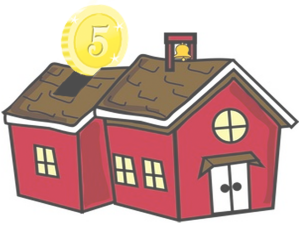 Education in the youth of today is an investment in society’s tomorrow. We shouldn’t argue about things that are simply fact. But we do. One of the arguments that is commonly used is that academic performance does not improve with more money spent on education. There are several anti-public-education groups who attempt to make this argument. But is it true?
Education in the youth of today is an investment in society’s tomorrow. We shouldn’t argue about things that are simply fact. But we do. One of the arguments that is commonly used is that academic performance does not improve with more money spent on education. There are several anti-public-education groups who attempt to make this argument. But is it true?
At the time the data used in the infographic below was compiled, the best-performing state in the country was Massachusetts. Massachusetts spent $15,087 per student. That number is significantly more than the average amount spent per student in the United States, which was $11,518 per student. However, it wasn’t the highest. New York spent the most per student at $20,610 per student in 2014. Yet, New York was number 9 on the list; not number 1.
Why?
New York has a lot of extremes. It has very affluent people. It also has very poor people. It has areas that have a lot of crime. New York is also inherently expensive. Salaries for staff are higher. Property costs are higher. All of these above-average expenses are passed on to taxpayers. High-cost-of-living locations will naturally have a higher amount spent per student.
At the same time, many the worst performing states have very low costs-of-living, yet they cannot seem to drive academic performance up with the spending-does-not-improve-academic-performance mindset. If spending didn’t matter then you would see states like Alabama, Mississippi, and Nevada doing well. But they don’t. There are among the worst-performing schools in the United States. And the United States ranks lower than many other developed countries, which means Alabama, Mississippi, and Nevada are among the weakest links in the world, not just the United States.
Does school spending lead to better grades?
The short answer is yes. We compiled this information in the infographic below so you can easily see how educational spending correlates to student performance.
Proper funding is one component of education that leads to better academic performance, but it is not the defining metric. You cannot simply assume that more money per student means better performance. Consider a district that is in decline. In such a district, people move away to go to better school districts. This causes the number of students remaining in the district to decrease. This artificially and temporarily inflates the cost per student since there are fewer students. That happens until teachers get laid off and staffing expenses are lowered to compensate for the lost tax revenue. The point is that one set of metrics alone cannot tell the whole story.
Please feel free to share this infographic with anyone.






50 thoughts on “The Correlation Between Education Spending and Performance”